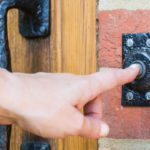By: Jennifer O’Neill
When you’re selling your home there’s so much to do: find a Realtor®, do touch-ups, get that balky air conditioner fixed, look into staging… It’s no wonder that sometimes things fall between the cracks. Big things. (We’re not pointing fingers, promise!) Our arsenal of experts—aka real estate agents who have worked with many home sellers—identify the to-do’s that sellers typically overlook. We promise you, these tasks are well worth the time it will take to complete them (which isn’t very long at all).
Heed this sound advice, and there’s a good chance selling your house won’t be nearly as stressful as everyone tells you it is.
To-do No. 1: Google your address
Not all sellers scour the Internet to find out what’s being said about their property, but they should. Nearly all buyers—90%—search online during their hunt for a home, according to the National Association of Realtors. You should be aware of what your online listing looks like, since it will influence the kinds of concerns buyers will have, says Avery Boyce, a Realtor with Compass Real Estate in Washington, D.C.
“Is the site’s estimated value very different from your asking price? It might be because tax records have the wrong information about the number of bedrooms or bathrooms your house has, and this is easily fixed,” Boyce says. Consider this too: Google Maps’ street view of your property may not show improvements that you’ve made, so you’ll want to be sure to include those updates in your listing.
To-do No. 2: Account for improvements and issues
“If you’ve owned your home for a while, make a list of all the problems you’ve solved while you’ve lived there,” says Boyce. This could include chimney fires, water damage, or a flood in the basement. Whether you solved the problem or not, you should disclose this information to the buyer so you don’t wind up in a lawsuit after the sale. Disclosing “invisible improvements” that you’ve made, like re-grading or adding a French drain system, can also be a great source of comfort for buyers, adds Boyce.
“The same goes for sewer lines or tanks, radon remediation, or leaky skylights.”
To-do No. 3: Check your real estate agent’s references
An agent’s bad behavior or incompetence could cost you time, money, and peace of mind, so it’s well worth taking extra steps to find the best real estate agent for you. Ask friends for recommendations.
Check that the people you’re considering have a current real estate license—with no complaints filed against them. Meet with the agent and reach out to a few of their references directly.
“Real estate agents should be happy to provide a number of references for a new client to call,” says Marianne Leonard Cashman a Realtor with William Raveis Real Estate in Andover, MA. As far as talking to your friends about a real estate agent recommendation, here are some questions Cashman suggests asking:
- Did you have confidence in your real estate agent?
- Do you think he/she had good knowledge of the local market?
- Did your agent communicate well and keep you informed during the entire transaction?
- Do you think that he/she negotiated well on your behalf?
- Did your agent have good vendors who could assist you?
- Did your agent returned calls/emails in a timely fashion?
- Would you recommend this person? Why? (Or why not?)
To-do No. 4: Insist on social media marketing
You staged your home beautifully, picked a competitive price, and listed the property, but there’s something else you’ll need to prepare before you’re fully ready to sell—a social media marketing plan. Video tours, floor plans, and photo galleries promoted on Facebook, Twitter, and Instagram are must-dos, advises Cashman.
“You want to make sure that your agent is using all avenues to attract the right buyer for your home,” she explains. “Make sure your home has a presence on your agent’s website, their agency’s website, and is promoted on various sites that will market the home and give information about open houses.”
To-do No. 5: Make sure the doorbell rings
Ah, attention to detail. It’s those little cosmetic repairs that could cost you your home sale. If buyers see that you can’t even be bothered to repair a busted doorbell, they’re automatically going to think about what else may need fixing and view the home negatively.
“First impressions make all the difference,” says Cashman. “A well-kept home, starting with the view from the curb, gives the perception that the seller has great pride in the home and has taken good care of it—which translates into less energy and costs for the buyer as they prepare to move in.”
To-do No. 6: Clean inside everything
Storage is a huge selling point for homes. So be warned: Buyers are going to poke around inside closets, drawers, cabinets, ovens, refrigerators, and even the dishwasher, whether they’re cleaned or not—so you’d better make sure they are clean.
“Spending the money on a service to deep-clean your home will come back to you at least 10 times in your sales price,” says Boyce. Even if you’ve swept up and scrubbed all surfaces to a shine, you’re not done until dust, crumbs, and creepy crawlies are cleaned out from within the small spaces too.
To-do No. 7: Clarify which items are not included
You don’t want a buyer to fall in love with your house because of the custom window treatments and then rescind their offer when they find out the curtains aren’t for sale.
“The law says that anything bolted to the wall or ceiling goes to the buyer unless specifically excluded in the contract,” says Boyce. “If you want to take your flat-screen TV, chandelier, or custom pot rack, be sure to label it as soon as the house goes on the market, so that buyers don’t bank on owning that item and wind up disappointed.”


